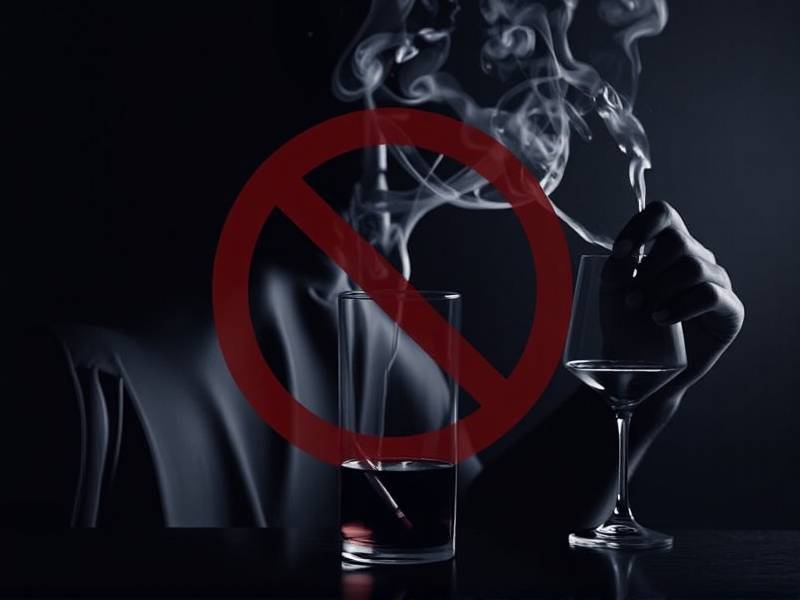How to Quit Drinking Alcohol and Smoking: Effective Methods for a Healthier Life
"How to Quit Drinking Alcohol and Smoking: Effective Methods for a Healthier Life"
Introduction: The journey towards a healthier life often starts with the decision to quit harmful habits such as drinking alcohol and smoking. These habits not only pose significant health risks but also affect one's overall well-being. In this article, we will explore effective methods to help you quit drinking alcohol and smoking, providing you with the tools and knowledge necessary for a healthier lifestyle.
- Understanding the Impact of Alcohol and Smoking
Before diving into the methods, it's crucial to understand the impact of alcohol and smoking on your health. Both substances have been linked to various diseases, including cancer, heart disease, and respiratory problems. By recognizing these risks, you are more likely to be motivated to quit.

- Setting Clear Goals
The first step in quitting alcohol and smoking is setting clear goals. Determine why you want to quit and what you hope to achieve. Whether it's for your health, financial reasons, or personal growth, having a clear goal will keep you focused on your journey.
- Developing a Support System
Quitting alcohol and smoking can be challenging without proper support. Surround yourself with individuals who are supportive of your decision, whether they are friends, family members, or support groups. They can provide encouragement, advice, and accountability throughout your journey.
- Gradual Reduction Method
The gradual reduction method involves gradually decreasing your intake of alcohol and cigarettes over time until you reach zero consumption. This approach can be effective for some individuals as it allows them to ease into their new lifestyle without feeling overwhelmed.
- Alternative Coping Strategies
Finding alternative coping strategies is essential when trying to quit alcohol and smoking. Engaging in activities such as exercise, meditation, or hobbies can help distract you from cravings and provide a healthy outlet for stress or anxiety.
- Utilizing Over-the-Counter Aids
Over-the-counter aids such as nicotine gum or patches can help alleviate withdrawal symptoms when quitting smoking. Additionally, some individuals may benefit from non-nicotine medications prescribed by a healthcare professional.
- Professional Help
In some cases, seeking professional help may be necessary when attempting to quit alcohol and smoking. A therapist or counselor can provide personalized guidance tailored to your specific needs.

- Staying Motivated
Maintaining motivation is key during the quitting process. Celebrate small victories along the way and remind yourself of the long-term benefits of a healthier lifestyle.
Conclusion: Quitting drinking alcohol and smoking requires determination, support, and effective strategies tailored to your individual needs. By understanding the impact of these habits on your health, setting clear goals, developing a support system, utilizing alternative coping methods, staying motivated, and seeking professional help if needed – you can embark on a journey towards a healthier life free from harmful substances.
Remember that quitting is not an easy task but one that is worth the effort for improved well-being in both mind and body.
